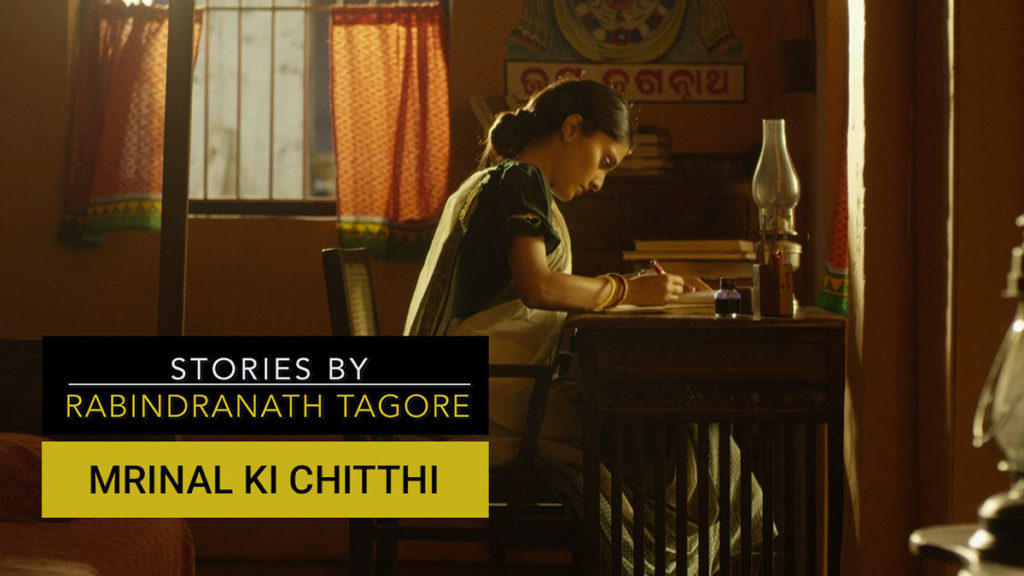Tracing Tagore Back To Odisha
Rabindranath Tagore needs no introduction. The first Nobel Laureate from Asia, he had established India on the world literary map. Tagore has also left a rich legacy of music, poetry, short stories, dramas, novels, and other writings that transcend time and generations. It’s a matter of pride that Odisha too had inspired this literary giant to pen several works, including Pravasi (Expatriate), Janmadin (Birthday), and Epare Opare (This Bank, That Bank). But his most celebrated work linked to the state is the short story Streer Potro (The Wife’s Letter). With the sea town of Puri and the cult of Lord Jagannath as the backdrops, Tagore poignantly tells the story of a woman’s plight and resentment against unjust social traditions. My City Links unravels a literary heritage

Rabindranath Tagore’s humanism is reflected in his characters who challenge societal norms and injustices. A good example is Mrinal, the protagonist of the story Streer Potro (The Wife’s Letter). Published in 1914, Mrinal’s letter forms the whole text of the story. It strikes a defiant note against the plight of women, both married and widows, during the late 19th century.
The scene of action is a cosy room at the sea-facing Radhakanta Dharamshala in Puri,
The story begins with Mrinal writing a letter to her husband from Puri. Along with the letter, she sends ‘Mahaprasad’ from the Jagannath temple. She compares her present environment with that of her husband, who is presumably busy in office.

Mrinal tells him about her journey to the holy city of Puri, away from “the snail to its shell” life she was confined to in Kolkata. She is sorry because her husband didn’t apply for leave from work to accompany her because he is too attached to the big city. She tauntingly adds that it must be Mahaprabhu’s (Lord Jagannath) will.
Mrinal’s unconditional faith in Mahaprabhu is seen throughout the story. Despite an apparently strained relationship with her husband and the unjust attitude of society towards a widowed girl, she holds onto her belief in Lord Jagannath and hopes that he will right everything.

She introduces herself not as the ‘Mejo-Bou’ (the second bride in her joint family), but as an individual benumbed with seeing injustices against women. This also leads to a realisation. After 15 years of marriage, the fact finally dawns on Mrinal that she also has other relationships, with the world and the World-Keeper. This insight coupled with her faith in Mahaprabhu gives her the courage to write the letter, venting all her suppressed complaints.
We learn that she came from a huge joint family with her in-laws. But the two cows in their household were the only beings she could relate to. She had been confined to an outhouse during her last month of pregnancy. The experience was too traumatic, leading to a miscarriage.

Following this, she finds solace in the orphaned girl, Bindu, whom she takes up as her own daughter. It’s revealed that Bindu had run away from the torments of her in-laws and taken shelter in Mrinal’s household. But the tranquillity is short-lived. After facing repeated taunts from others, Bindu runs away and commits suicide.
Bindu’s death leaves Mrinal shattered and she resolves to go on a pilgrimage to Puri. She asks her husband to take her, but he refuses. At this, Mrinal defiantly declares that she wants to go to the Jagannath temple to pray for a child. She finally sets out on her journey as an independent woman, leaving her husband and backward society behind.
It’s a matter of pride for Tagore lovers in Odisha that this feminist masterpiece reflects the laureate’s deep attachment to the state. Heritage enthusiasts recall the sprawling house and land that the then Odisha government had leased to him. The poet had stayed there in 1939 and later donated it to the state government.

The house was converted to a boys’ hostel for Samanta Chandra Sekhar College before being abandoned. In the absence of any conservation effort, the house today is reduced to rubble, a sad ending to a rich heritage. After all, not every story ends on a happy note.
Blurb: Despite an apparently strained relationship with her husband and the unjust attitude of society towards a widowed girl, she holds onto her belief in Lord Jagannath that he will right everything

Author: Aafreen Firdaus
Aafreen is a doting mother to several kitties and a doggo who loves to pamper everyone with delicious food. She is a free spirit and a wizard of words and she loves to tell beautiful stories through her writing. She is also a loving and caring soul, always ready to pitch in with a helping hand and a smile on her face.
Read more from author

